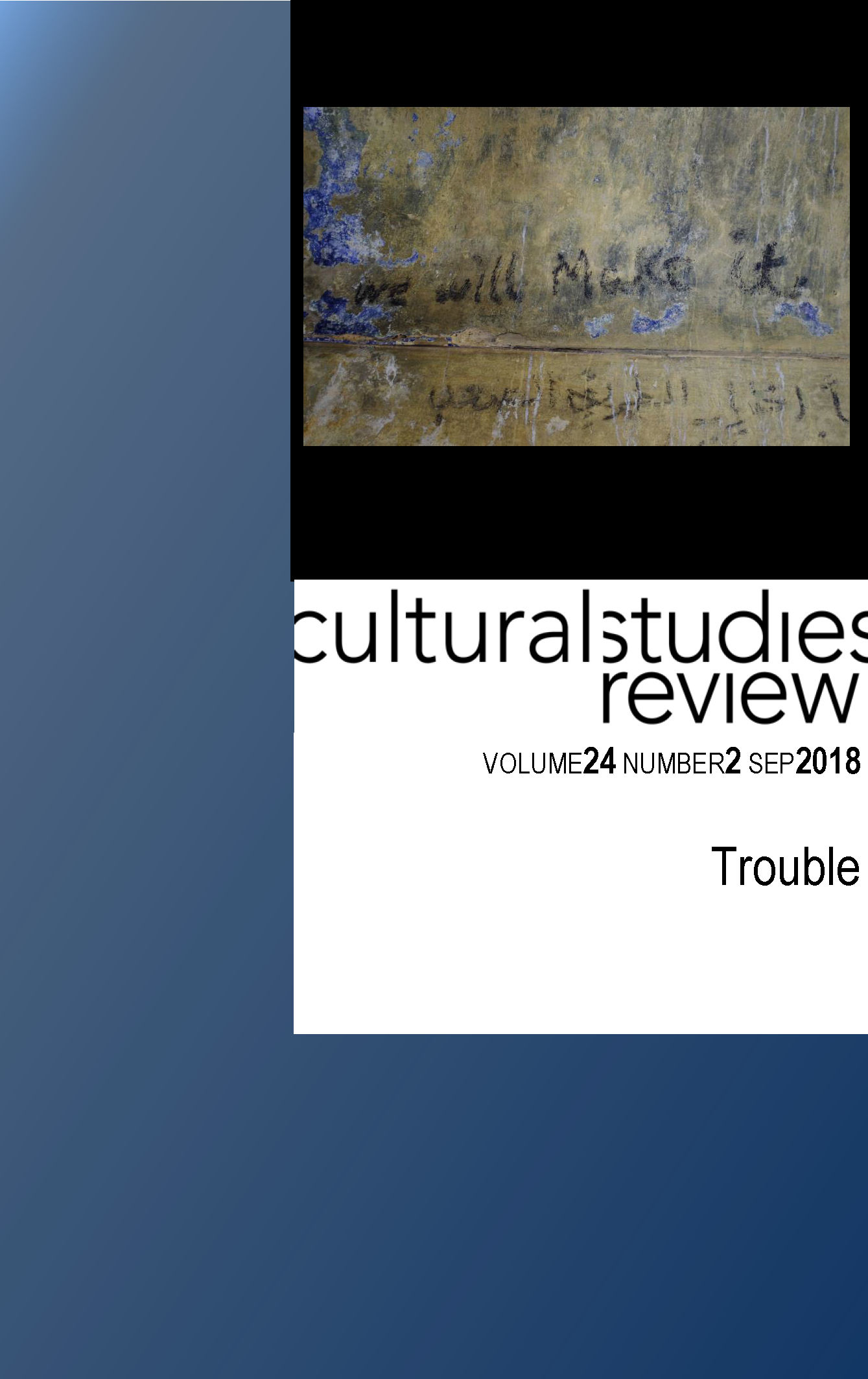Trump Studies: The Double Refusal And Silent Majorities In Theoretical Times
Main Article Content
Abstract
This article builds on the embryonic inter/trans/anti/disciplinary Trump Studies to generate a theoretical framework for understanding the Brexit outcome and Trump’s victory. The consequences of researchers operating in a post-expertise political sphere means that new theories are required to create innovative interdisciplinary solutions to difficult, defiant and troubling social and economic problems. Using Jean Baudrillard’s theorization of banality and Stuart Hall’s ‘Great Moving Right Show,’ we consider how higher education researchers remain engaged in public discussions of, about and with ‘the silent majority.’
Article Details
Section
Authors who publish with this journal agree to the following terms:
a) Authors retain copyright and grant the journal right of first publication with the work simultaneously licensed undera Creative Commons Attribution License that allows others to share and adapt the work with an acknowledgement of the work's authorship and initial publication in this journal.
b) Authors are able to enter into separate, additional contractual arrangements for the non-exclusive distribution of the journal's published version of the work (e.g., post it to an institutional repository or publish it in a book), with an acknowledgement of its initial publication in this journal.
c) Authors are permitted and encouraged to post their work online (e.g., in institutional repositories or on their website) prior to and during the submission process, as it can lead to productive exchanges, as well as earlier and greater citation of published work (See The Open Access Citation Advantage Service). Where authors include such a work in an institutional repository or on their website (ie. a copy of a work which has been published in a UTS ePRESS journal, or a pre-print or post-print version of that work), we request that they include a statement that acknowledges the UTS ePRESS publication including the name of the journal, the volume number and a web-link to the journal item.
d) Authors should be aware that the Creative Commons Attribution (CC-BY) License permits readers to share (copy and redistribute the work in any medium or format) and adapt (remix, transform, and build upon the work) for any purpose, even commercially, provided they also give appropriate credit to the work, provide a link to the license, and indicate if changes were made. They may do these things in any reasonable manner, but not in any way that suggests you or your publisher endorses their use.
